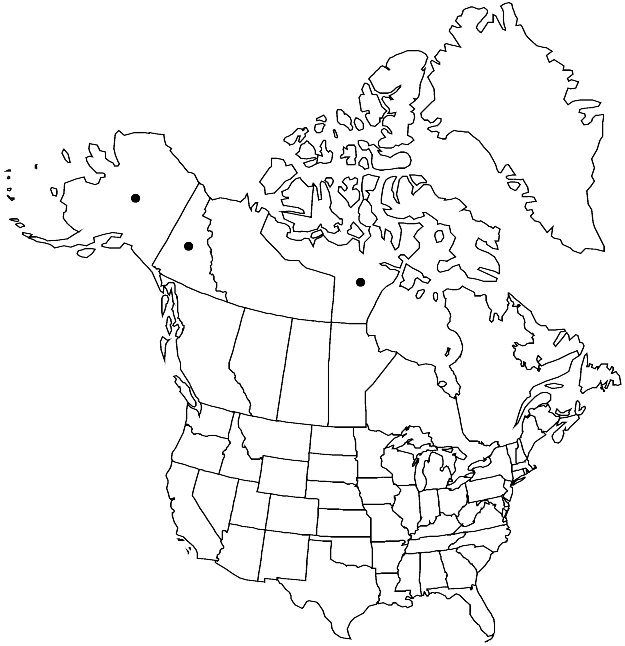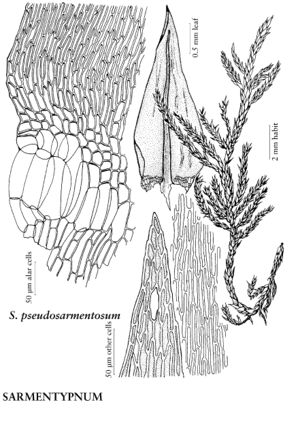Difference between revisions of "Sarmentypnum pseudosarmentosum"
J. Hattori Bot. Lab. 100: 133. 2006.
FNA>Volume Importer |
imported>Volume Importer |
||
| Line 69: | Line 69: | ||
|publication year=2006 | |publication year=2006 | ||
|special status=Endemic;Illustrated | |special status=Endemic;Illustrated | ||
| − | |source xml=https:// | + | |source xml=https://bibilujan@bitbucket.org/aafc-mbb/fna-data-curation.git/src/bb6b7e3a7de7d3b7888a1ad48c7fd8f5c722d8d6/coarse_grained_fna_xml/V28/V28_630.xml |
|genus=Sarmentypnum | |genus=Sarmentypnum | ||
|species=Sarmentypnum pseudosarmentosum | |species=Sarmentypnum pseudosarmentosum | ||
Revision as of 22:47, 27 May 2020
Plants medium-sized, with red secondary pigment. Stems with branch and shoot apices not pencil-like; epidermal cells widened in part of stem circumference, forming partial hyalodermis; axillary hair distal cells 1–3, hyaline when young. Stem leaves ovate or triangular-ovate, gradually narrowed to apex, straight or almost so, strongly concave; base not decurrent; margins entire or in part minutely, obtusely denticulate; apex acuminate or sometimes blunt, deeply furrowed; costa ending shortly below apex; alar region from margins to costa or nearly so; marginal cells at widest part of leaf similar to medial cells or rarely slightly differentiated.
Habitat: Spring-influenced habitats, along brook shores
Elevation: low to high elevations (0-1700 m)
Distribution

Nunavut, Yukon, Alaska.
Discussion
Sarmentypnum pseudosarmentosum is superficially similar to S. sarmentosum in habit, with rather thick shoots and short and often curved branches with obtuse apices due to densely inserted and relatively short-acuminate leaves. However, the leaves are more gradually narrowed than in S. sarmentosum, and the usually acuminate or short-acuminate leaf apices in S. pseudosarmentosum make the separation easy. Sarmentypnum pseudosarmentosum is similar to S. exannulatum, from which it differs mainly in the more strongly concave leaves that are mostly deeply furrowed to almost tubular distally, and in its entire leaf margins. Sometimes the stem leaf lamina is weakly plicate (when moist) in S. pseudosarmentosum, which does not occur in S. exannulatum. Few specimens of S. pseudosarmentosum were available for study; it may be a good species or may represent an extreme, Arctic modification of S. exannulatum.
Selected References
None.
